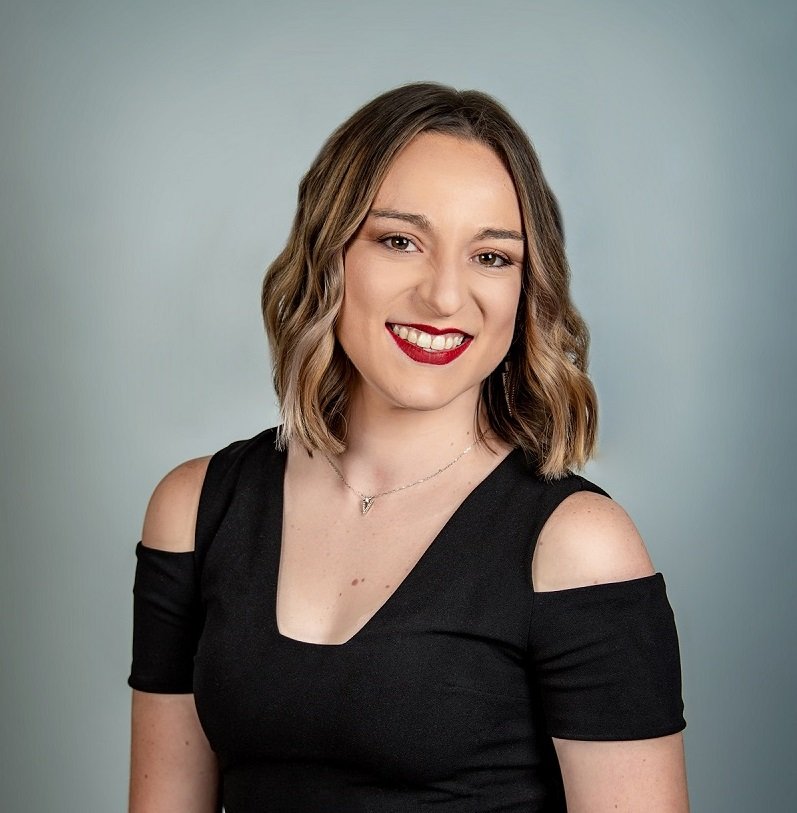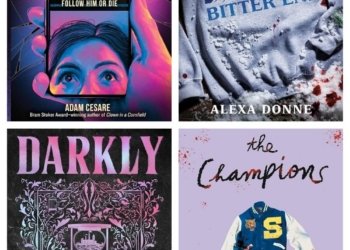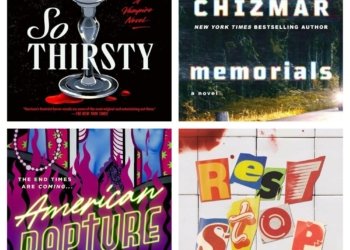No products in the cart.
A Conversation with Amy Prokopis, a brilliant Sci-Fi Romance Author
Amy Prokopis loves writing everything from science fiction and fantasy to contemporary romance.
516
SHARES10.3k
VIEWSAmy Prokopis is a fiction author from Oklahoma who writes books for young adults. She graduated from Oklahoma State University with a bachelor’s degree in English and a minor in German before obtaining a master’s degree in school counseling.
Amy Prokopis loves writing everything from science fiction and fantasy to contemporary romance.
Besides writing, Amy enjoys distance running and spending time with her husband, their son, and their Havanese, June.
Let’s get started with a quick rapid fire.
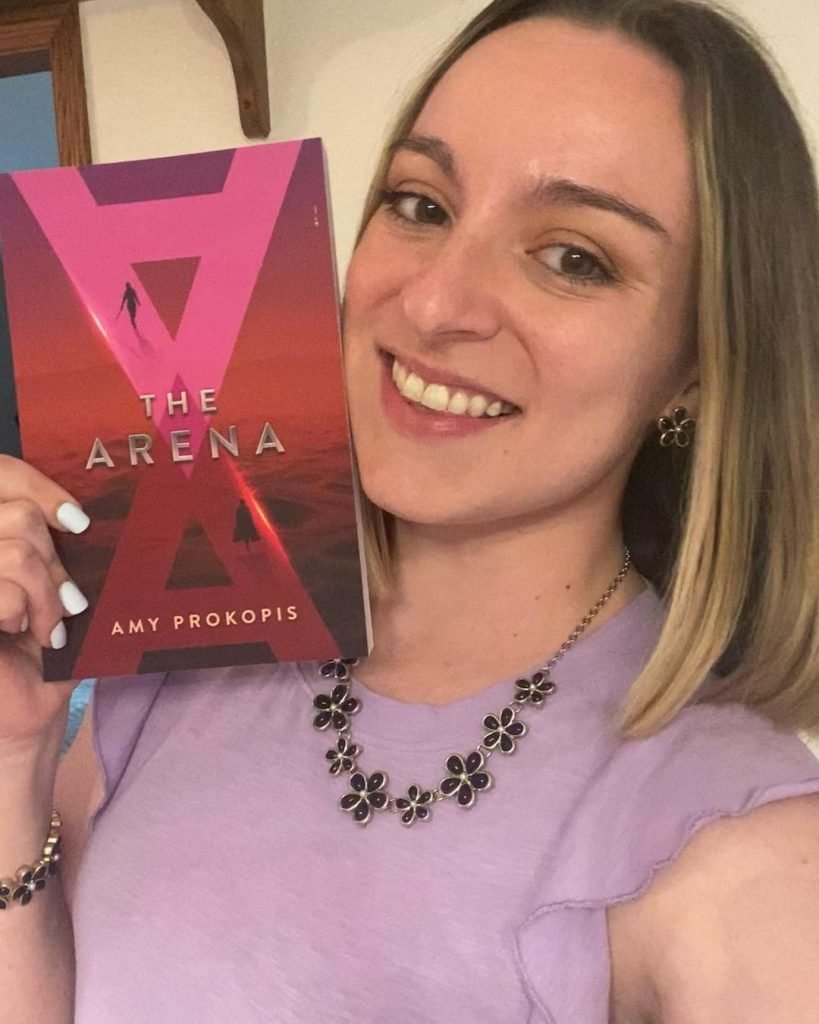
Q1. If you could be transformed into one animal, which one would you choose?
I’d be an owl.
Q2. What time do you usually go to bed at night?
10 pm
Q3. Are you more of an introvert or an extrovert?
I’m an introvert.
Q4. Who is your favorite Disney character?
I don’t know, but probably one of the villains.
Q5. Would you rather travel to the past or to the future?
The past.
Q6. What is your last Google search?
How to make a sloppy Joe costume *giggling*
Q7. What object do you misplace or lose the most?
My brain.
Q8. What is the kindest thing someone ever did for you?
My grandpa recently gave me his old car.
Q9. Learn by watching or learn by doing?
Learn by watching.
Q10. Expensive presents or homemade presents?
Definitely homemade, unless it’s books.
Q11. What is one missed opportunity that you wish you could have a second chance at?
No idea. Run track in high school? I think my high school mile was state-worthy.
Q12. What is not a big deal to most people but is torture to you?
I hate driving. I used to have a fear of driving, but now I just hate it.
It’s time for a more detailed conversation, Amy.
You’ve answered our rapid fire exceedingly well, Amy. Now, it’s time for our readers to know more about the person behind the book.
Q. Tell us something about yourself that’s going to make us wonder more about you.
Being an author has always been Plan A, but before finally getting published I was a high school teacher. I used to teach English and English for students who were learning it as a second language, but my favorite subject to teach was German. I have an English degree with a minor in German. I got a master’s degree in School Counseling and split my time right now between writing books and working in a high school. I plan on moving to writing fulltime in the future.
Q. Well, that will keep you in our thoughts. So, what books did you grow up reading?
I read whatever I could find in the school, city, and our home library. I read books about animals and science and fiction like Harry Potter, which shaped a lot of my beginning as a fantasy writer. My favorite books were always fantasy. Past grade school, most of what I read was fantasy or classic literature. I was that weird girl in high school English who loved when we read anything Shakespeare. I still read a mix of fantasy (mostly young adult fantasy) and classics, though these days I love reading books with a romantic subplot in the mix.
Q. Interesting. What, to you, are the most important elements of good writing?
As I’ve explored different styles of writing and read more books, what sets books apart for me is the character development and getting the feeling that the characters are people that go beyond the page. I like getting those small details about a character that don’t really apply to the plot of the story but give me a sense that this is a person with history, likes and dislikes, and someone who is off doing something when they aren’t in a scene with the rest of the characters. Before I ever start writing a book, even after I have the plot all planned out, I first spend some time imagining who the characters are outside of the story.
Q. Do you hide any secrets in your books that only a few people will find?
This question makes me wish that I had more than I do. I have some references in my upcoming book “Guardians of the Sixth Gate” to characters who will appear in their own books in the future. There are three books in the “Guardians of the Sixth Gate” series, but I have a spin-off series in the planning phase about a character that makes an appearance in the series. I don’t put true secrets in my books past those, but this question is definitely making me consider it.
Q. Now comes the most anticipated question that every author must answer. How do you process and deal with negative book reviews?
Anything in the world of art is subjective. When I started on my journey of self-publishing my first book, some people respond as though I was settling on self-publishing rather than choosing it. I have read some really good self-published books that are well-written and well-edited. I have also read some traditionally published books that I thought were bad (and also have a surprising amount of typos). I don’t think there is any right or wrong way to publish a book and after realizing that I let go of a lot of my concerns about bad reviews and opinions. I think getting feedback, including the bad, helps you grow. I’ve taken the negative reviews and considered them as I write new books, but I don’t let them stop me from putting my work into the world or writing the stories that I want to write.
Q. What comes first for you — the plot or the characters — and why?
I always start with the characters. I said before that I think developing deep characters makes the story so much more enjoyable and realistic. When I develops a new story, I always start with a character, get to know their personality, and then drop them into a scenario that would require them to change in some way.
Q. How do you develop your plot and characters?
Before I start planning my book, I always start by imagining the people, setting, and the main plot of the book. If I’m still thinking about it weeks later, then I move into seriously outlining how that story would look. I draw a lot of my writing inspiration from nature, so most of my stories include forests or other outdoor scenery. I really enjoyed creating a new outdoor environment when I wrote my YA Sci-fi novel “The Arena.” The setting helps inform a lot about my characters and even the plot for me.
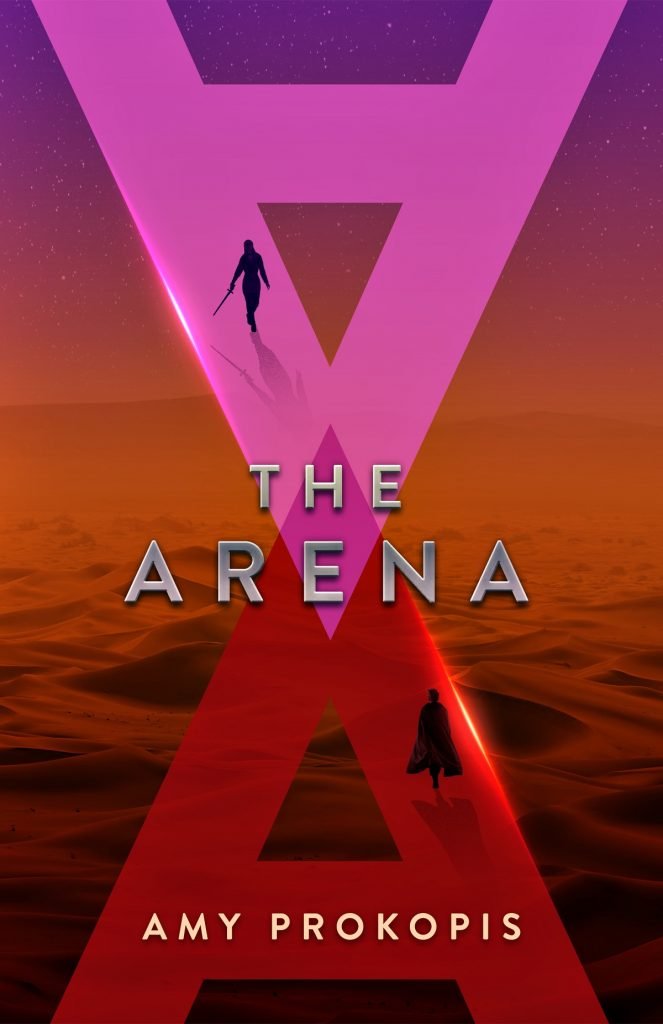
Q. What does literary success look like to you?
I believe that literary success isn’t so much about selling a lot of books but finding your readers. I think that there is a reader for every story. Finding your readers is the hardest part about being an author, but once you do it makes writing that much more fun. I would love to move to writing fulltime, so that is an aspect of literary success for me that I hope to aspire to very soon.
Q. Let’s talk about your book. Tell us about it. No major spoilers.
“Guardians of the Sixth Gate” is a young adult urban fantasy novel about Tori Johnson who is hoping to make senior year different and show the small town of Burbrook that she’s more than just the smart girl at school. After going to her first high school party, she gets into an accident that should’ve killed her and she wakes up to learn that she is a guardian of the sixth gate to the Shadowlands, a kind of afterlife for supernatural beings where the guardians man the gate to keep the demons from passing back into our world. Everything seems great until the ferryman from the Shadowlands comes after Tori. They learn that something about her is different, something the mistress of the Shadowlands wants more than anything.
Q. What part of the book did you have the hardest time writing?
For “Guardians of the Sixth Gate’ the hardest part of the process was adjusting some details about one of the characters. I ended up changing a character’s age and a little bit of the backstory so that it fit with another character better. Making that adjustment was difficult because I put a lot of value into character development and making each character feel like real people. I wanted to make sure I got it right, so I spent a lot of time on that one detail.
Q. Would you and your main character get along?
Tori Johnson is a lot like me, but also has some traits that I really wished I had when I was in high school. I think we would be good friends.
Q. What are the essential characteristics of a hero you can root for?
I like heroes that have faults. I love a character that is somewhere in that gray area. Creating realistic characters is super important in making your story easier for a reader to fall into. No one is perfect in real life, and I don’t like reading about characters who don’t have faults. I like when I read about characters who make questionable decisions and learn how to move on from them.
Q. Let’s talk about the process of writing. When you’re writing an emotional or difficult scene, how do you set the mood?
I almost always write while listening to music. I usually create a playlist that reflects the book I am writing to help me set the mood. For fun, I make those playlists public when my book is published so that readers can listen to them as well. Those playlists are on my YouTube channel.
Q. What was your hardest scene to write?
In “Guardians of the Sixth Gate,” there is a scene at the end of the book where Tori realizes something about another character and makes a tough decision in order to protect them. It was such a big moment that required just the right amount of buildup and emotion that I had to pause after I finished writing it and come back to reread it a day later to make sure I got it right and to give myself a mental break as well. I love writing those kinds of raw emotional scenes, but they are a little exhausting.
Q. It’s been fun. Now, before we wrap this up, do you have any suggestions to help me become a better writer? If so, what are they?
Read everything that you can in many genres, because there are some styles and specifics to each genre that I think are good to know. Reading outside your usual genre makes it easier to identify them. Read what’s new and current from the genre you write in as well. Readers will pick up books they find interesting, even if that book is about a theme or a trope that was popular a few years ago, but if you can hook someone in because you’re book is similar to something else that’s popular right now or the newest book by a successful author in your genre then that’s a plus.
Her next book “Guardians of the Sixth Gate” comes out October 31st, 2022 and will be available in paperback and on Kindle.
Related Posts
10 Most Anticipated YA Thrillers of Fall 2024
Are you prepared to hear some teenage screams? Here are a few of the most captivating and captivating YA thrillers...
A Conversation with Diane Owens Prettyman, a Romance Author
Diane Owens Prettyman is the author of the romantic adventure story Thin Places and the twentieth-century historical novel Redesigning Emma....
8 Most Anticipated Horror Books of Fall 2024
Now is the perfect moment to create the ideal horror TBR, as fall is rapidly approaching and Halloween and the...
8 Must-Read Spicy Romance Novels of 2024
Warm-blooded romance readers, unite! We've selected the most anticipated books that will be released in the first half of 2024,...
About Us

Trenzle
Where Trends are made and discovered
Trenzle is your official source of discovering the latest people, work, and ideas that deserve to trend. Discover Authors and their books, Creators and their work, People and their opinions, and Stories from around the globe.
Learn more
Latest Posts
Trenzle Top 10 Trending Free Book Deals for December 12, 2024
December 12, 2024
10 Most Anticipated YA Thrillers of Fall 2024
October 30, 2024
Trenzle Top 10 Trending Free Book Deals for October 29, 2024
October 29, 2024
Categories
© 2023 Trenzle - Online Author News & Magazine
